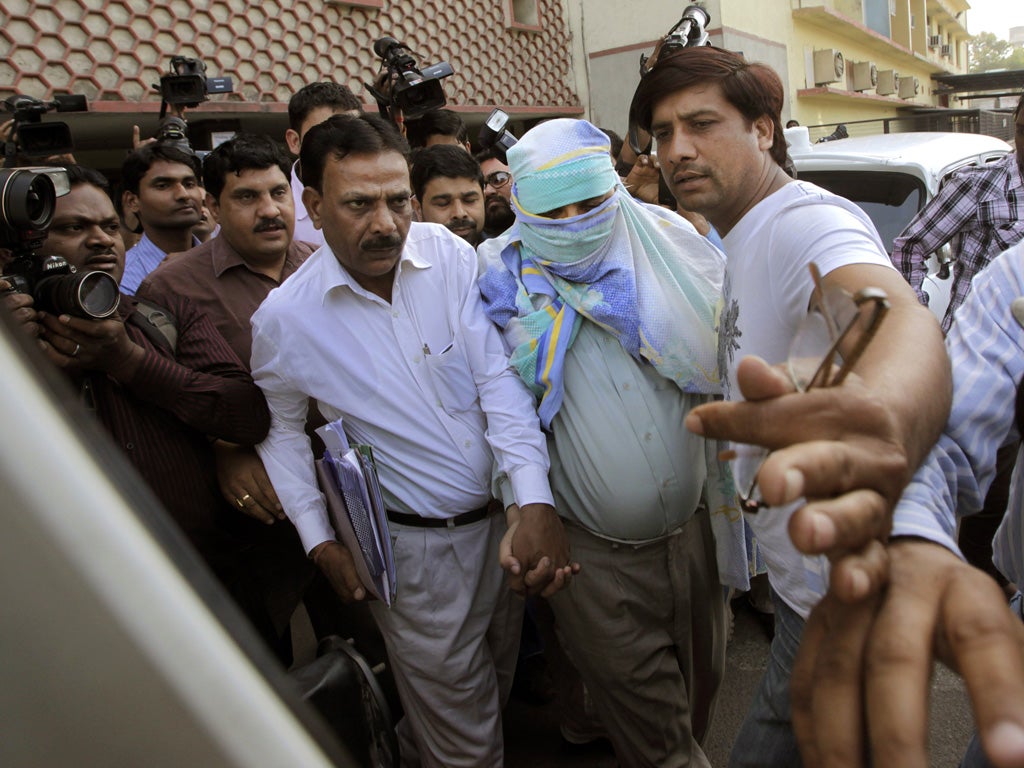Journalist held over Israeli attacks is 'the wrong man'
Supporters say Muslim suspect, detained after bomb injured diplomat's wife in Delhi, is innocent

Two months after an Israeli diplomat was targeted in a bomb attack in Delhi, supporters of a Muslim journalist detained by the police are stepping up their campaign to have him released and insisting the authorities have seized the wrong person.
Syed Mohammed Kazmi, a leading Urdu-language journalist who also spoke Farsi and had worked for an Iranian news agency, was detained on March 6, three weeks after the vehicle of an Israeli diplomat was targeted in an attack involving a magnetic explosive device. Through leaks to the media, the police claim they have electronic surveillance evidence to link him to a conspiracy.
“He was arrested at 11.30am in the morning. We did not know where he was. Then they came to our house and they went through everything,” said one Mr Kazmi’s sons, 18-year-old Yourab, proclaiming his father’s innocence.
Supporters of Mr Kazmi and journalists who know him say it is unbelievable that he could have been involved in the attack. They say police have seized on his links to Iran and his known antipathy towards Israel and come up with something more sinister. They have organised candlelit marches and demonstrations, most recently last night.
Mr Kazmi’s lawyer, Mahmood Paracha, has been trying to secure bail for his client. In statement placed before the court, Mr Kazmi has claimed he was forced to sign papers and that he had been “ interrogated by officials of other investigating agencies, like Mossad of Israel, RAW, IB and others”.
At a recent court hearing at which Mr Paracha accused the police of intentionally blocking his access to Mr Kazmi, he said the authorities had produced no evidence against him. “India is the largest democracy in the world. Let us show to the world that we are following the letter of the law,” he said.
He said that his client had told him: ‘Do not try to get me released. Fight to get the truth out and then I will be acquitted.”
The attack that injured the wife of an Israeli diplomat and three other people took place on the same day as a series of blasts in Thailand and a failed explosion in Georgia. Police have said there are links between the plots and the authorities in Bangkok subsequently arrested three Iranian citizens, including one man who blew off his legs when a bomb he was carrying went off early.
On the day of the Delhi blast, Mr Kazmi was protesting with others outside the headquarters of the ruling Congress Party. They were campaigning over the alleged encroachment on an 800-year-old Shi’ia shrine by a plant and nursery business, said to be part owned by two senior Congress members. The shrine secretary, Bahadur Abbas, said: “Now the protests have stopped. People are too scared.”
Sanjay Kapoor, editor of Hard News magazine and one of several Indian journalists, including Mr Kazmi, who travelled to Syria on a visit paid for by the authorities in Damascus after the bomb attack, said he had been very relaxed. “He did not appear anxious or concerned,” he said.
Police in Delhi say they want to questions four Iranians in connection with the February 13 blast and Interpol has issued a so-called Red Corner notice for them. Police have told the Indian media that Mr Kazmi was detained after they picked up electronic links to the Iranians. A police spokesman, Rajan Bhagat, said yesterday: “I have no comment at this stage.”
India and Israeli have developed an increasingly important political and strategic relationship, though the police in Delhi have denied that Israeli officials have been permitted to question Mr Kazmi. A spokesman for the Israeli embassy, David Golbfarb, issued a statement that said: “Israel has full confidence that the relevant Indian authorities are conducting these investigations in the most professional manner, and that the perpetrators of this heinous attack will be brought to justice."
Join our commenting forum
Join thought-provoking conversations, follow other Independent readers and see their replies
Comments
Bookmark popover
Removed from bookmarks